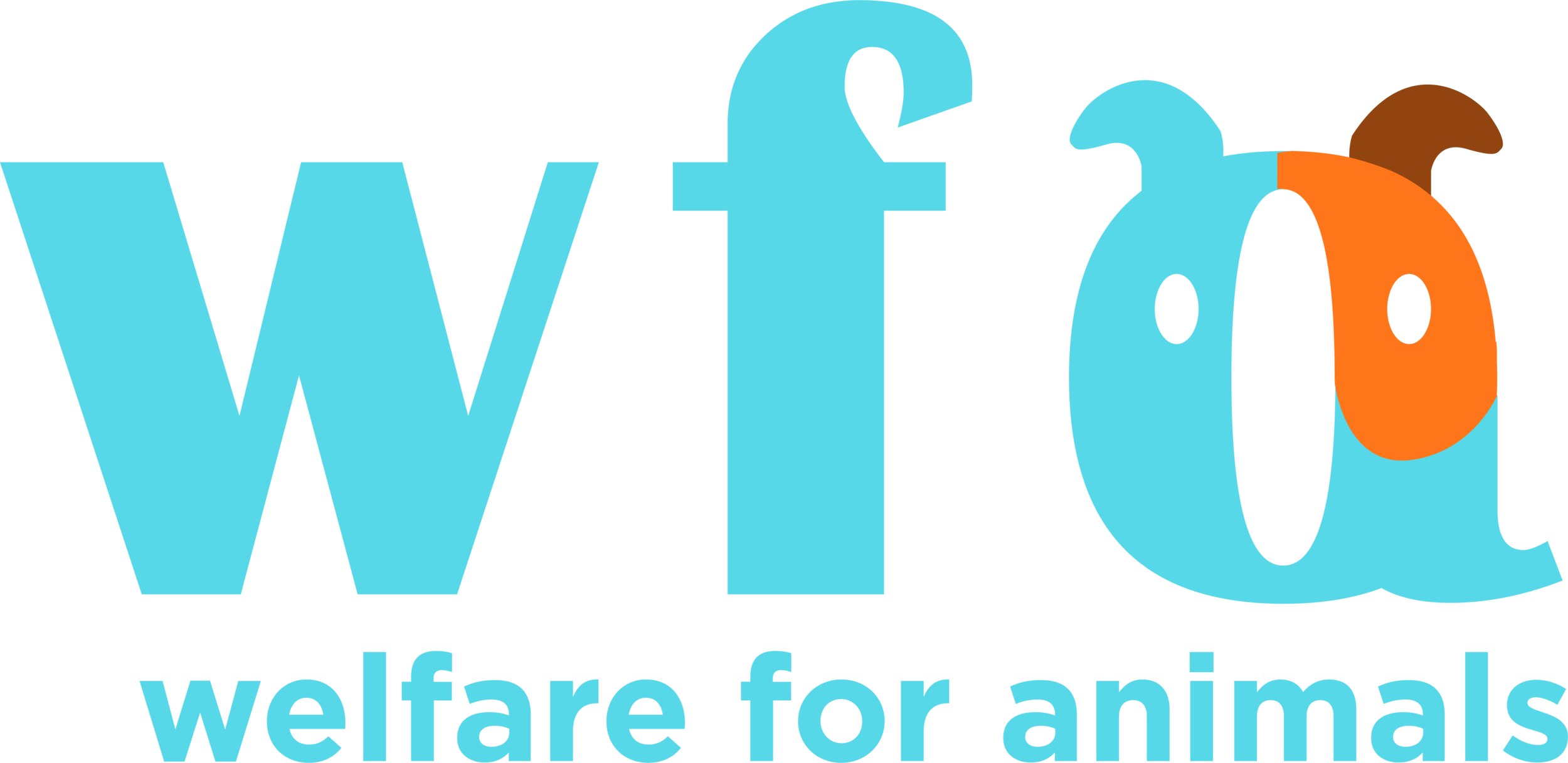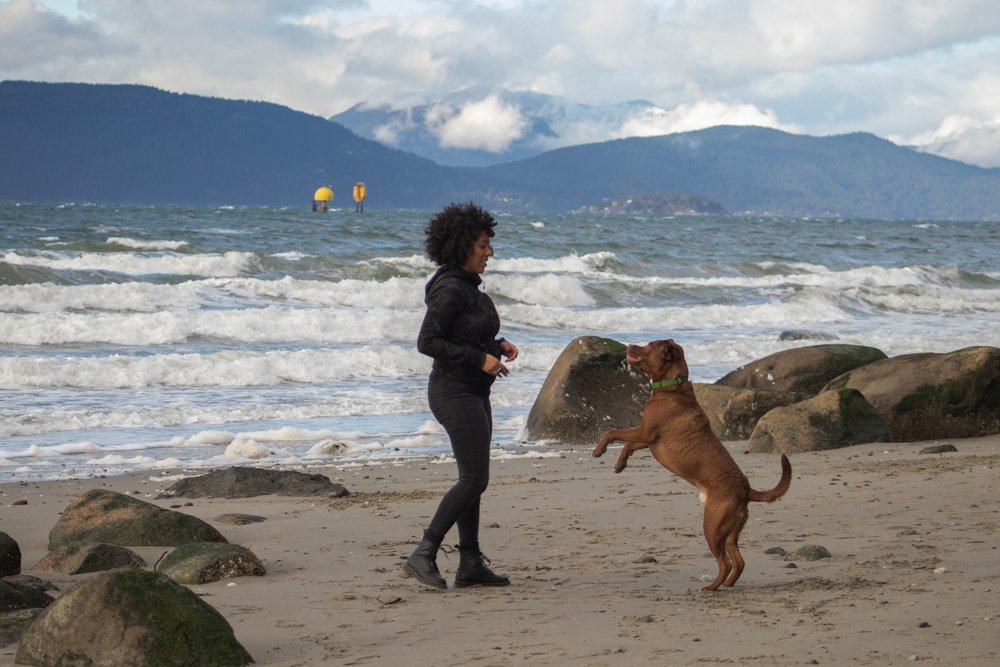Q&A Dog Training- Ask a Trainer
February is Black History Month- but what does that mean in the animal training industry? Despite over 1/5 of Canada’s population being BIPOC, a number which is growing at a very large rate (https://www.catalyst.org/research/people-of-colour-in-canada/ ), BIPOC animal advocates, professionals, and pet guardians are consistently underrepresented.
BIPOC individuals and voices are a large part of any country’s population and should be heard and represented. For this very important month and beyond, WFA’s Ask the Trainer will feature two BIPOC individuals and hear from them- how we can better support BIPOC animal professionals and advocates. First in February with the wonderful Masina from Q&A Dog Training @q.a.dogtraining and next month will feature Kassidi of @ginger_naps, who is a social justice advocate. Please give their businesses a follow/like and remember- that their businesses and content should be supported year-round and not just in one month a year.
Check out Q&A Dog Training at the social media links below.
Q&A Facebook: https://www.facebook.com/QA-Dog-Training
Q&A Instagram: @q.a.dogtraining
Q&A website: https://www.qandadogtraining.com
What is Q&A Dog Training?
An open space to help guide clients on the force-free path using the latest science-based methods. Welcoming all who are committed to their dogs' growth & to build a deeper connection all while having fun. Training should be fun for everyone!
Q&A Dog Training logo
What inspired you to start Q&A Dog Training?
I’ve always had a deep love for animals. I grew up running around with chickens, a bunch of cats and pugs on acres of land. I was always the go-to person for dog sitting and walking. I eventually got a job with an awesome one-woman-run dog walking company. I ended up getting my dog Q as a puppy and shortly after, I decided I wanted to learn more about dog behaviour and help people understand why their dogs do what they do. You can never stop learning in this industry, there’s so much information out there, good and bad. I’ve learnt that really doing your research on any course you are interested in is very key as well as talking to more established trainers and getting some insight from them never hurts. So I guess you can say it’s all kind of inspired me to take the leap and open up Q&A.
What do you specialize in?
I work with a lot of people that have just brought home a rescue dog and are figuring out the best path to making them as comfortable as possible. I love working with leash reactivity cases and seeing that change over time in the dog as well as seeing the nerves calm in the humans. And puppies, you can't forget puppies!
Masina dog training, with Q’s help.
Can you tell us about the dog courses you’ve taken or are currently taking?
I loved Micheal Shikashio's in-depth Aggression In Dog's Master Course. I’d like to keep learning about aggression and take on more cases because not a lot of trainers in my area do. Victoria Stillwell’s foundation course was great. I started this course while I was still dog walking and just love the way the whole program is laid out. I highly recommend taking any of her courses. Those are just a few of my favourites. At the moment I'm focusing on school at the Academy for Dog Trainers. It’s a two-year intensive course that really sets you up to be the best you can be. I’m excited to gain even more knowledge to better help my clients and their dogs.
Tell us about your dog!
Masina and the apple of her eye- Q!
Q is the apple of my eye & my muse :) He’s my little adventure bud. Loves forest runs, swimming in any body of water, catching balls & ripping apart sticks. He’s picked up a fairly new behaviour where he pushes and paws around rocks, he can entertain himself for hours with a good rock and be quite vocal about it too. He's a big suck with people, really likes kids and little puppies. He’s my shadow dog and is with me a lot of the time. He definitely likes his space though haha he can be an independent guy at times which I'm all for!
You work in beautiful Vancouver! What has it been to train and walk dogs there?
I was in the mountains and forest daily when I was a dog walker which was a dream, especially when it was a winter wonderland. Vancouver has so much greenery and spaces for dogs. If I'm meeting clients outside of their homes, I'll usually always be able to find a quieter park or neighbourhood that we can start training in. You can drive 20 minutes anyway outside of the city and it will feel like you are far away & emerged in nature. Having the ocean and mountains as our backyard is a real treat.
Masina and Q on a beach in Vancouver
Have you felt represented when you were volunteering at animal rescues? Or were you often the only BIPOC professional?
I’m often the only BIPOC in my profession in Vancouver. I don’t know any other force-free black dog trainers in British Columbia so if you do, send them my way! Vancouver is a young city that doesn’t have a large black community. In the late 1960s, the city bulldozed Hogan's Alley which was home to our black community to build the overpass. I’d like for younger generations that want to become dog trainers to be able to see representation. I didn’t have that growing up and it’s definitely lacking in this industry.
How do you think BIPOC animal professionals can be better supported so they can feel represented?
I think having reputable schools & courses that are accessible when it comes to payment is the first thing. Scholarships are fantastic and all but if they are only 50% or less off that’s still a huge amount of money people are having to pay and isn't always doable for some. If we want to see more representation we need to make things more accessible & have more opportunities for BIPOC across the board, aka all over the world. Hiring BIPOC for courses and classes in schools so people see that representation & are learning from those professionals directly.
Please share any specific services that you offer that you’d like highlighted.
At the moment I'm working with clients one on one. I tailor their session to their individual dogs and have a plan in place. I have lots of ideas for new services on the horizon so stay tuned!
Masina and Q





